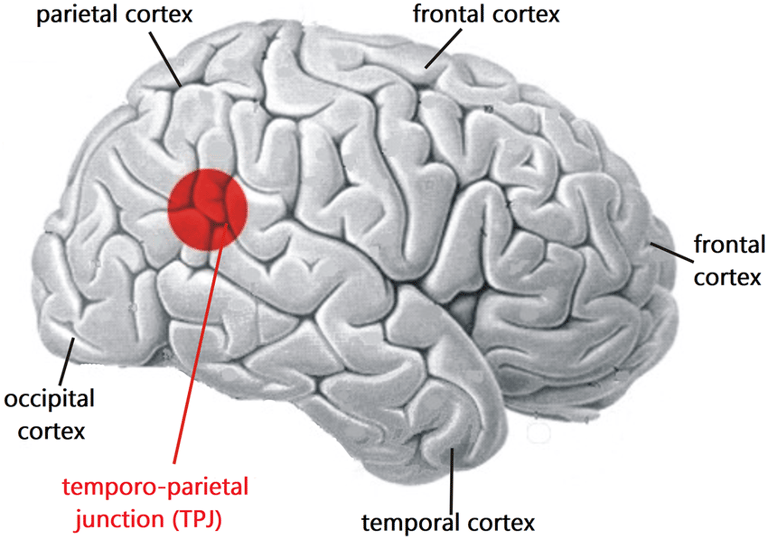The Crucial Role of Emotional Intelligence for Career Success
Want career success? Master emotional intelligence. Enhance your workplace relationships and become a valued asset in any team.
PSYCHOLOGICAL CONCEPTS


In the world of professional success, the distinction between Intelligence Quotient (IQ) and Emotional Intelligence (EQ) is becoming increasingly significant.
Time Magazine's well-known quote, "IQ gets you hired. EQ gets you promoted," encapsulates this notion further, especially within the evolving dynamics of workplace success.
IQ, which measures cognitive abilities such as analytical skills, logical reasoning, and technical knowledge, has traditionally been viewed as a primary factor in securing employment. It is often thought of as a key determinant in the hiring process by many people still, where employers often seek individuals who can solve complex problems and execute tasks efficiently, i.e., they're smart, to put it bluntly.
However, while it might be true that IQ can open doors, data seems to increasingly suggest that Emotional Intelligence (EQ) truly drives career advancement.
But what is EQ exactly?
EQ essentially involves the ability to understand, use, and manage emotions in positive ways to communicate effectively, empathize with others, overcome challenges, and defuse conflict.
It also encompasses critical skills such as self-awareness, self-regulation, motivation, empathy, and social skills. These abilities are crucial for fostering a collaborative work environment and building strong professional relationships, which is why high EQ seems to be so effective and valuable.
In the workplace, EQ enables individuals to navigate the social complexities of the office, lead and inspire others, and adapt to changing circumstances. For example, a manager with high EQ can better understand and manage their team's emotions, leading to higher morale and productivity.
Similarly, employees with strong EQ can often effectively handle stress, remain resilient in the face of setbacks, and maintain a positive outlook, all of which are essential for long-term career growth.
Ultimately, the growing emphasis on EQ in professional environments reflects a broader recognition that technical skills alone are not enough.
As workplaces become more collaborative and diverse, the ability to connect with others on an emotional level is increasingly valued. Companies are looking for leaders and team members who can not only perform their job functions but also contribute to a positive, cohesive work culture.
Thus, while a high IQ might be the ticket to getting hired, it is the EQ that will propel individuals to reach their full career potential.
But why is that?
Let's look at the rise of EQ in Dr. Goleman's work to give you a broader view.
Dr. Daniel Goleman's Insights on Emotional Intelligence
Dr. Daniel Goleman, a renowned psychologist, revolutionized the understanding of emotional intelligence (EQ) with his seminal work, "Emotional Intelligence: Why It Can Matter More Than IQ."
Goleman presents a compelling case that EQ, the ability to understand and manage one's own emotions and the emotions of others, is a more accurate predictor of success than traditional IQ.
This paradigm shift underscored the importance of emotional intelligence in both professional and personal contexts, and more people sought to develop this skill.
In his work, Goleman identifies several core components of emotional intelligence.
First and foremost is self-awareness, the ability to recognize and understand one's own emotions. This awareness is crucial for self-regulation, which involves managing one's emotional responses in various situations to maintain emotional stability.
Another key element is self-motivation, the drive to pursue goals with energy and persistence, even in the face of setbacks.
Another crucial aspect of EQ that Goleman emphasizes is empathy, or the capacity to comprehend and share the feelings of others. Empathy tends to foster better relationships and enhance communication, making it invaluable in the workplace.
Goleman also emphasizes social skills, which enable individuals to manage relationships effectively, navigate social complexities, and inspire others.
With that in mind, it's no wonder individuals with high emotional intelligence tend to excel professionally. They are often just better at handling stress, adapting to change, and working collaboratively. However, these traits not only enhance job performance but also contribute to a more positive work environment.
Moreover, people with high EQ generally maintain more fulfilling relationships, as they can connect with others on a deeper emotional level.
So, as you can see, the practical benefits of developing emotional intelligence are manifold.
Goleman's insights suggest and support the notion that, while cognitive intelligence is important, emotional intelligence is often the more crucial skill in achieving long-term success and personal fulfilment.
By cultivating things like self-awareness, self-regulation, motivation, empathy, and social skills, individuals can enhance their professional performance and build more meaningful relationships.
Now that we understand how important EQ can be, both on a personal and professional level, the crucial question becomes: How can someone develop or improve their EQ level? Is it even possible?
For that, we need to consider some of the neuroscience behind emotional intelligence to see what we can learn.
The Neuroscience Behind Emotional Intelligence
In recent years, emotional intelligence (EQ) has garnered significant attention for its essential role in both personal and professional life.
The scientific community has provided substantial evidence linking brain function with emotional intelligence, particularly focusing on the temporoparietal junction (TPJ). This brain region seems to be instrumental in processing emotions and facilitating empathy, which are fundamental components of EQ.
The TPJ, located at the intersection of the temporal and parietal lobes (see image below), is a pivotal area for social cognition. Research has demonstrated that the TPJ is actively involved in understanding others' mental states, often referred to as theory of mind.
This ability to infer and empathize with the emotions and intentions of others is a core aspect of emotional intelligence. Functional MRI studies have shown heightened activity in the TPJ when individuals engage in tasks requiring empathy and emotional processing.


Neuroscientific investigations have also revealed that variations in TPJ activity can explain why some individuals naturally excel in emotional intelligence. These variations may be attributed to both genetic factors and environmental influences, such as early childhood experiences and social interactions.
For instance, individuals with a more active TPJ tend to have a higher capacity for empathy and are better equipped to manage social relationships effectively.
However, emotional intelligence development is not solely dependent on innate brain function.
Neuroplasticity, the brain's ability to reorganize itself by forming new neural connections, plays a crucial role in enhancing EQ. Therefore, engaging in mindfulness practices, emotional regulation exercises, and social skills training can stimulate TPJ activity, thereby improving emotional intelligence over time.
Consequently, the implications of that for professional development and personal growth are profound.
For example, in the workplace, individuals with high emotional intelligence are often better at conflict resolution, team collaboration, and leadership. Therefore, they must be put in these roles more often to maximise their benefits.
However, by understanding the neuroscience behind EQ, which underscores the importance of nurturing these skills for career success, organizations can also make more effort to develop EQ through intentional training so that the whole organization can benefit.
By recognizing the role of the TPJ and leveraging strategies to enhance emotional intelligence, individuals can significantly improve their professional and personal lives and organizations' culture and performance outcomes.
